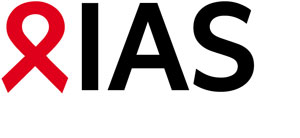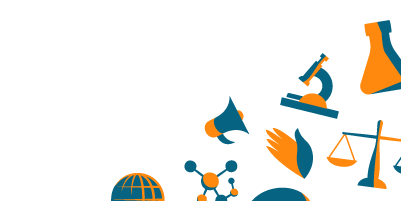IAS President
Adeeba Kamarulzaman
The International AIDS Conference, organized by IAS – the International AIDS Society, is the world’s most important gathering for people living with and affected by HIV and all those working to address the HIV epidemic.
The Conference’s participatory approach involves community representatives, researchers and policy makers. Jointly they inform decisions such as host city selection and program design. And of course they create the Global Village and Youth programme.
The Conference Committee drives the strategic planning of all IAS conferences. It is composed of IAS leadership and community representatives (see graphic below). It reviews host city bids and works with the IAS Secretariat to create a shortlist of host cities.
“In recent discussions, much emphasis has been placed on the location of the host city,” Conference Committee member Erika Castellanos of Global Action for Trans* Equality (GATE) said. “But we also need to consider the safety of marginalized groups as not all locations are equally welcoming to many of us.”
About 70 countries criminalize consensual same-sex activity and 15 criminalize trans expression, which would immediately exclude important key populations from attending a conference.
“Ensuring equitable access is vital but unfortunately there is no single location that makes that possible for everyone equally,” Conference Committee member Glory Alexander of ASHA Foundation said. “That’s why we are offering a hybrid conference and making large investments into some 1,600 scholarships, including with some of the funds provided by Canada.”
Once a host city is selected, the Conference Committee is boosted with the addition of further community representatives, researchers and policy specialists to form the conference’s Organizing Committee. The broad representation ensures that the programme design of the International AIDS Conference is participatory, puts people first and follows the science.
The IAS Conference Committee is responsible for the strategic planning of all IAS conferences taking place over a four-year cycle. Together with the IAS, the Conference Committee reviews the bids and creates a shortlist.
Once the location is confirmed, rotating members including local representatives are added to the Conference Committee, which together constitute the Organizing Committee.
Adeeba Kamarulzaman
Sharon Lewin
Birgit Poniatowski
Kenneth Ngure
Jessica Whitbread, GNP+ and ICW
Glory Alexander, ASHA Foundation
Erika Castellanos, Global Action for Trans* Equality (GATE)
– IAS President and AIDS 2022 International Co-Chair Adeeba Kamarulzaman
Many of our attendees are immunocompromised or work closely with immunocompromised communities. A requirement of the host city is that it will work with us to ensure high health and safety protocols for all delegates, staff and speakers.
The International AIDS Conference is the largest HIV conference in the world. In-person participation requires a venue, accommodation and travel infrastructure large enough to host such an event.
A key selection criteria is that the host city provides a safe environment and equal treatment for people most affected by HIV. HIV disproportionately affects some of the most marginalized people, and finding an environment for such communities to feel safe and express themselves freely is central.
The Organizing Committee must be able to operate independently. It must be empowered to create a conference programme shielded from outside vetting or influencing.
The cost of the venue and logistics and confirmed financial support from the host country must enable a conference budget that ensures sufficient funding for participatory programme planning and scholarships.
Originally, the IAS selected a middle-income country to host AIDS 2022. Unfortunately, the IAS had to pull out of these negotiations as the host government made it a condition that it would vet and thereby influence the conference programme. The Organizing Committee insists on full independence in putting together a programme that puts people first and is guided by the latest scientific evidence.
Following that decision, Montreal was identified to host AIDS 2022.
The IAS, its members and its partners are aware that underlying the difficulty experienced by many attendees of AIDS 2022 to enter Canada lies a broader problem of global inequities and systemic racism that significantly impacts global health. HIV, in particular, has always disproportionally affected the most marginalized.
The IAS will not go back to business as usual after the conference but will draw from the lessons from AIDS 2022 and re-evaluate how we ensure that the International AIDS Conference remains an inclusive event, especially for the communities most affected by HIV.
The International AIDS Conference is perhaps the only global public health conference that provides a significant section of the event – the Global Village and Youth Programme – entirely free of cost. The Global Village and Youth Programme is created from public applications from a diverse range of people. It is a gathering place where communities from around the world meet to share their experiences and learn about HIV, and where the public can witness how science translates into community action.
Learn more here.
 © Copyright 2022 – 2024 IAS – the International AIDS Society
© Copyright 2022 – 2024 IAS – the International AIDS Society
Contact us at [email protected]


As is common practice with almost all professional websites, this site uses cookies, which are tiny files that are downloaded to your computer, to improve your experience. This page describes what information they gather, how we use it and why we sometimes need to store these cookies. We will also share how you can prevent these cookies from being stored; however, this may downgrade or 'break' certain elements of the sites functionality.
We may request cookies to be set on your device. We use cookies to let us know when you visit our websites, how you interact with us, to enrich your user experience, and to customize your relationship with our website.
Click on the different category headings to find out more. You can also change some of your preferences. Note that blocking some types of cookies may impact your experience on our websites and the services we are able to offer.
These cookies are strictly necessary to provide you with services available through our website and to use some of its features.
Because these cookies are strictly necessary to deliver the website, refusing them will have impact how our site functions. You can always block or delete cookies by changing your browser settings and force blocking all cookies on this website. However, this will always prompt you to accept/refuse cookies when revisiting our site.
We fully respect if you want to refuse cookies but to avoid asking you again and again kindly allow us to store a cookie for that. You are free to opt out any time or opt in for other cookies to get a better experience. If you refuse cookies, we will remove all set cookies in our domain.
We provide you with a list of stored cookies on your computer in our domain so you can check what we stored. Due to security reasons, we are not able to show or modify cookies from other domains. You can check these in your browser security settings.
We also use different external services like Google Webfonts, Google Maps, and external Video providers. Since these providers may collect personal data like your IP address we allow you to block them here. Please be aware that this might heavily reduce the functionality and appearance of our site. Changes will take effect once you reload the page.
Google Webfont Settings:
Google Map Settings:
Google reCaptcha Settings:
Vimeo and Youtube video embeds:
Hopefully that has clarified things for you and, as was previously mentioned, if there is something that you are not sure whether you need or not, it is usually safer to leave cookies enabled in case it does interact with one of the features you use on our site.
However if you are still looking for more information, then you can contact us through one of our preferred contact methods: [email protected].
